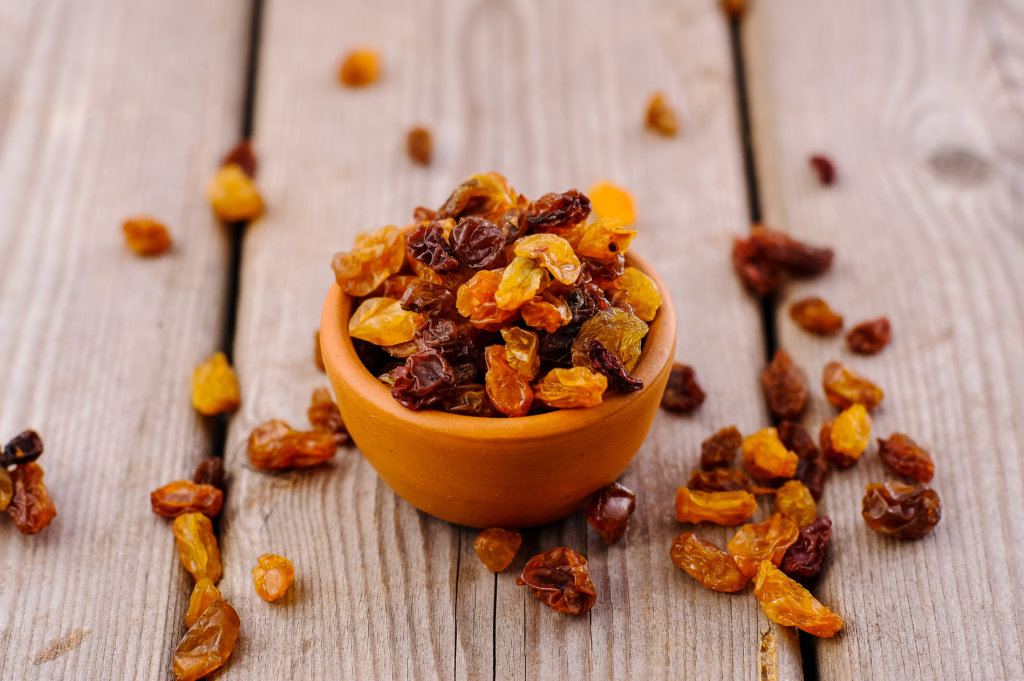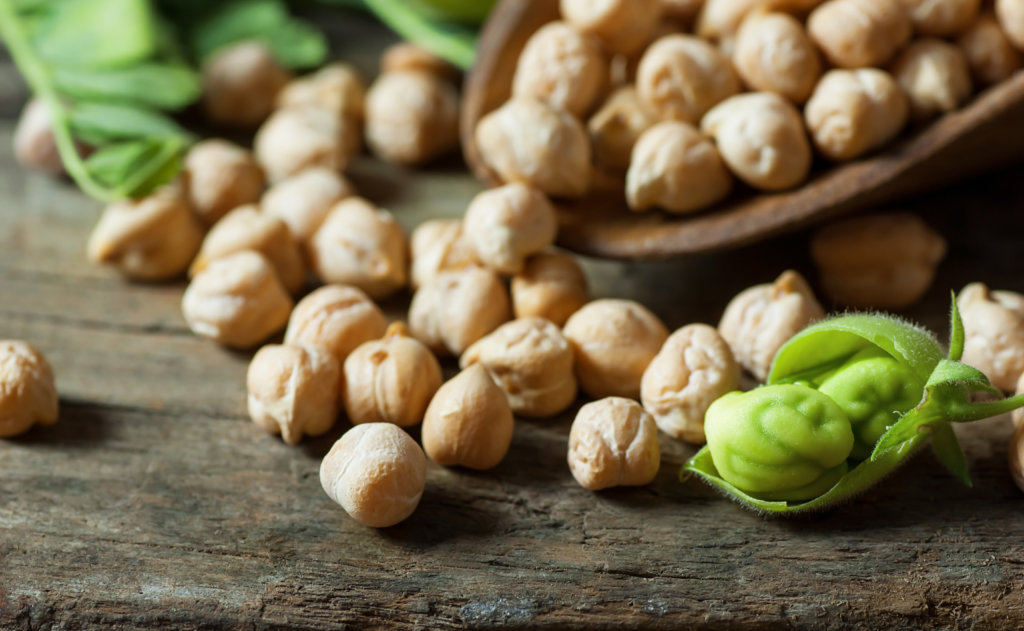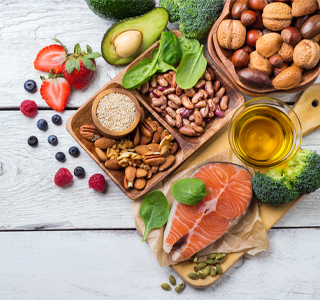Watch Out For These Calorie-Dense Healthy Foods
Are you currently planning your diet, or looking to lose weight? Then you’ll need to know which calorie-dense healthy foods to watch out for.
When eating foods that are considered healthy, we often convince ourselves that there is no limit to how much of the food we should eat. If you have ever measured out a single serving of peanut butter, you know that even healthy foods should not be consumed without limits. This is not to say foods like these should be avoided, but if you are looking to stay within a certain daily calorie allowance, you will probably want to learn about how your favorite foods measure up in calories and macronutrients. If you want to lose weight or want to prioritize healthy high-calorie foods in order to gain weight, here are a few calorie-dense foods you should be aware of.
What Is Calorie-Dense Healthy Food?
First, lets start off with “what is a calorie dense food”? Calorie dense foods are foods that contain a high number of calories relative to their weight. This is due to a high amount of saturated fat, sodium, added sugars, and other simple carbohydrates. These foods are high in calories, but lack the vitamins, minerals, and other nutritional components that are essential to a healthy diet.
What Is Nutrient-Dense Food?
So on the other side, what is a nutrient dense food? Nutrient dense foods contain a lower number of calories by weight but a higher number of essential vitamins, minerals, fiber, protein, and other beneficial nutrients.
Quinoa
Like other ancient grains, quinoa is a delicious and versatile protein source. However, many believe it is a much lower-calorie alternative to rice, when, in reality, one cup of cooked quinoa has 222 calories and one cup of cooked brown rice has 218 calories.
If you like quinoa, a typical guideline to follow per portion is about 1/2 a cup or about the size of your fist.
When planning out your diet, be sure to factor in this calorie-dense healthy food as a possible contributor to your additional pounds.

Raisins
Raisins are a delicious, popular dried fruit snack that everyone loves. However, if you are dieting, know that raisins are considered to be ‘calorically dense,’ meaning that you ingest a lot of calories by only eating a small amount.
In fact, one 1.5-ounce box contains 129 calories, but two full cups of grapes has the same amount of calories.
If you are really hungry, substitute this snack for a lower-calorie option to maximize your daily allowance. Learn more about the benefits of raisins here.

Peanut Butter
It can be incredibly easy to overeat peanut butter, which is no surprise that it is one of the classic high-calorie foods responsible for weight gain. But, it has a lot of benefits, like helping build muscle, burn fat, and fight heart disease.
If you are looking to watch your weight, it is not suggested to take a spoon to the jar multiple times a day. At 100 calories per tablespoon, two large spoonfuls can hold almost as many calories and fat as a Snickers bar.
Peanut butter is delicious and is a part of a balanced diet, however, be sure to limit your intake of this yummy spread. Learn more about peanut butter nutrition information here.

Chia Seeds
Chia seeds are ranked among the best high-calories foods thanks to their fiber, omega-3, and protein content.
These seeds are highly nutritious, contain lots of antioxidants, can lower your risk for heart disease, contain plenty of bone nutrients, and helps to reduce blood sugar levels.
However, although they are tiny, a single tablespoon of chia seeds still contains 70 calories. This makes chia seeds one of the types of foods that may be contributing to your overall weight gain.
Read more about the advantages and disadvantages of chia seeds here as you include them in your diet.

Pecans
Pecans are a favorite snack for many. Not only are they delicious, but pecans (and nuts in general), are a great source of protein.
Pecans are a great resource for heart-healthy fat, and various vitamins and minerals. However, they also happen to be rich in calories.
In fact, just a 1-ounce serving of pecan halves contains 196 calories.
If you’re looking to cut down on calories, you’ll want to consider reducing your intake of pecans.

Olive Oil
Extra-virgin olive oil is healthy and is an excellent choice for cooking. In fact, using olive oil may reduce your risk of heart disease, protect you against strokes, and lower your risk of type 2 diabetes, among many other benefits.
The drawback? Just two tablespoons of olive oil adds 238 calories to your meal. To avoid the added calories, you’ll definitely want to reduce the usage of olive oil.
Read more about olive oil’s advantages and disadvantages here.

Chickpeas
If you want to add fiber and protein to your salads or soups, you’ll likely chose chickpeas. However, keep in mind that this delicious food may add some calories to your dish! In fact, one cup of canned chickpeas has 286 calories.
Though high in calories, chickpeas do come with many health benefits, since they are a rich source of minerals, vitamins, fiber, and more.
Limit your intake of chickpeas, and you can still enjoy these health benefits. Learn more about the health benefits of chickpeas here.

Salmon
Salmon is an incredibly healthy protein source that’s a favorite among fish lovers. Not only is salmon one of the most delicious fish meats available, it is also easily one of the most nutritious foods on our planet.
However, salmon is denser on the calories than you may think. As a result, you you’ll want to limit your portion size.
In fact, one 6-ounce salmon fillet could have about 400 calories and 20 grams of fat. Next time you choose salmon, keep your portion size at 3 ounces.

Guacamole
Made with mashed avocados, white and scallion onions, jalapeño, diced tomatoes, cilantro, and salt, guacamole is a fan favorite among vegans, keto dieters, and foodies alike.
While guacamole is packed with potassium-rich and heart-healthy avocados, it is also packed with calories. In fact, one cup contains about 360 calories.
If do not want to give up your guac, trade your chips for veggies, or limit your intake of guacamole. Thanks to avocados being high in fiber, small amounts of guacamole can actually promote satiety to help you feel satisfied until your next meal.
So, yes, you can still eat guac! 🙂

Salad Dressing
This is one food you probably knew was calorie-dense.
For example, one 3-ounce serving of Caesar salad dressing, for example, has 390 calories and 42 grams of fat.
As an alternative to salad dressing, you can opt to either make a healthier version at home or when you are out, play it safe with balsamic vinegar or olive oil to keep your salad lighter.
If you still want to eat salad dressings during your weight loss journey, there are some healthier, less calorie-dense options out there. Read here for the 8 healthiest salad dressings for weight loss.

Healthy Calorie-Dense Foods FAQs
The most calorie-dense foods include: high-fat dairy, fatty meats, nuts, high-fat condiments, pastries, oils, candy, chips, fast foods, and sugary drinks. If you are dieting, you will want to avoid or significantly cut down on these foods, or as directed by your personal trainer, who will coach you on dietary changes you can make to improve your health.
The top 10 high calorie dense foods for bulking include: lean beef, quinoa, rolled oats, avocado, sprouted grain breads, nuts/nut butter, whole eggs, sweet potato, cottage cheese/whole milk, and dark chocolate.
Absolutely! As you have already gathered from reading this article, these foods are not only calorie-dense, but also healthy in other ways. For example, avocados, olive oil, and chia seeds. The key is being mindful of how much of these foods are consumed.
